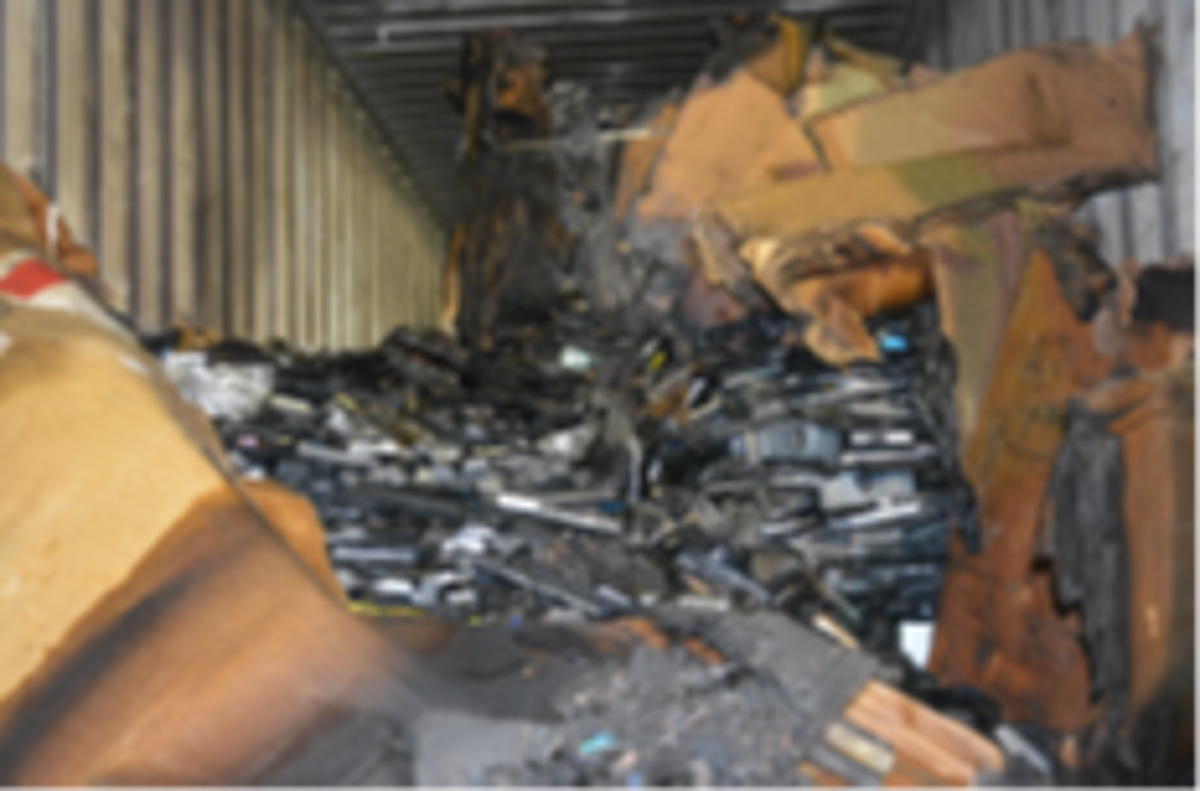USCG: Lithium battery fire
- Safety Flash
- Published on 8 April 2022
- Generated on 6 July 2025
- IMCA SF 09/22
- 2 minute read
Jump to:
The United States Coast Guard (USCG) has published Safety Alert 01-22 relating to a Lithium battery fire in a freight container whilst en route to a port for trans-shipment to a vessel.
What happened?
In August 2021 a container illegally loaded with discarded Lithium batteries caught fire while en route to the Port of Virginia in the United States. The container was being transported to port with the intent that it would be shipped to China aboard a container ship. The batteries caught fire on the highway resulting in loss of the cargo, and significant damage to the shipping container.

What was the cause?
Upon initial investigation, the fire department determined that the heat produced from the fire burned hot enough to burn or melt a hole through the freight container’s structure. In addition, the bill of loading listed “computer parts,” not Lithium batteries. This is a situation that made responding to the fire more challenging and could have been potentially catastrophic had the container caught fire after being loaded aboard the container ship.
Further investigation determined that the shipper had failed to properly placard, label, mark and package the lithium batteries, class 9, UN 3480 and 3481. The cause of fire was determined to be residual charge/full circuit, which led to a thermal increase.
Actions
Lithium batteries are inherently hazardous and should be treated with the greatest respect. IMCA members have reported a number of incidents of injuries, fires and explosions caused by mishandling of Lithium batteries.
- Ensure damaged/defective Lithium batteries are appropriately and properly packaged for disposal and/or recycling according to applicable legislation.
- Be aware of how to address additional marking requirements for Lithium batteries being transported and Lithium batteries that are damaged or defective, or being disposed of or recycled.
- Ensure that Lithium batteries prepared for transportation are protected against short circuit.
- Ensure that Lithium batteries are stored appropriately.
Related Safety Flashes
-
IMCA SF 19/19
12 August 2019
-
-
IMCA SF 10/17
12 May 2017
-
Safety Flash
-
IMCA SF 28/18
18 December 2018
-
-
IMCA SF 17/14
31 October 2014
IMCA Safety Flashes summarise key safety matters and incidents, allowing lessons to be more easily learnt for the benefit of the entire offshore industry.
The effectiveness of the IMCA Safety Flash system depends on the industry sharing information and so avoiding repeat incidents. Incidents are classified according to IOGP's Life Saving Rules.
All information is anonymised or sanitised, as appropriate, and warnings for graphic content included where possible.
IMCA makes every effort to ensure both the accuracy and reliability of the information shared, but is not be liable for any guidance and/or recommendation and/or statement herein contained.
The information contained in this document does not fulfil or replace any individual's or Member's legal, regulatory or other duties or obligations in respect of their operations. Individuals and Members remain solely responsible for the safe, lawful and proper conduct of their operations.
Share your safety incidents with IMCA online. Sign-up to receive Safety Flashes straight to your email.